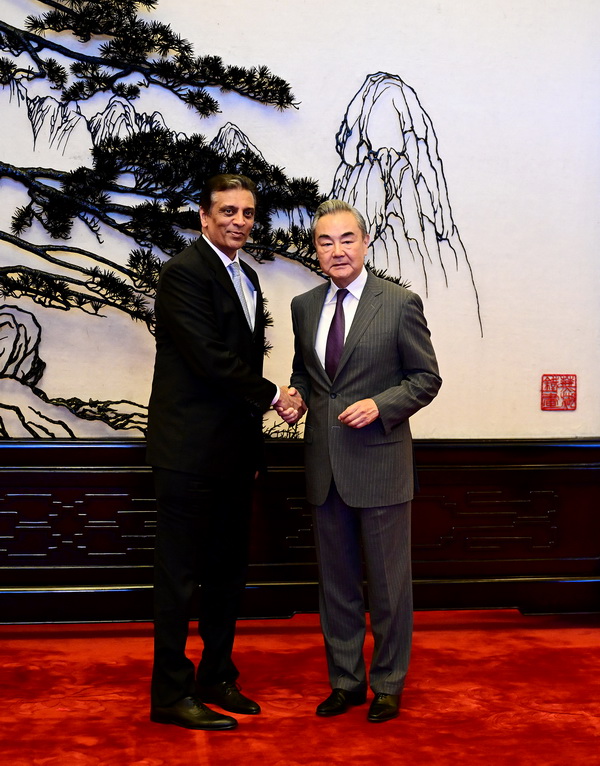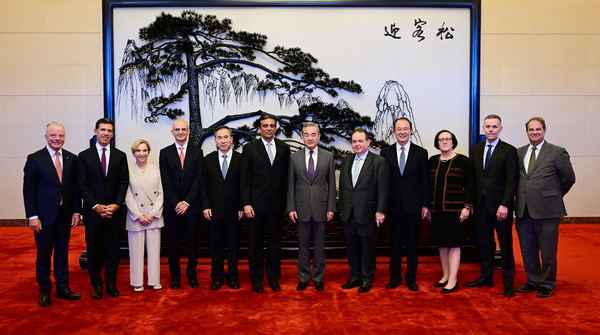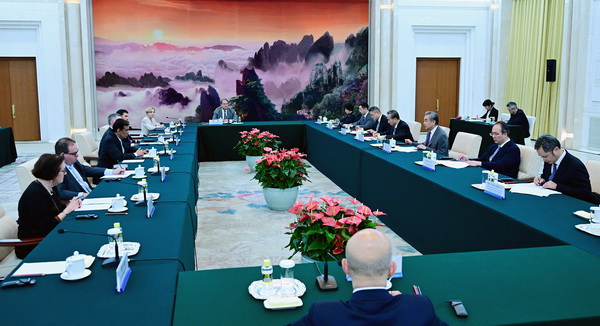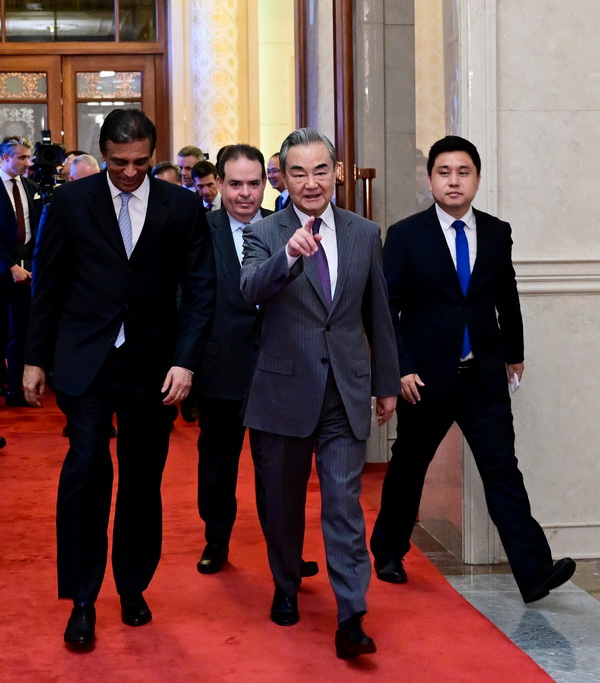
People’s Republic of China


On July 30, 2025, Member of the Political Bureau of the CPC Central Committee and Foreign Minister Wang Yi met with a delegation of the Board of Directors of the U.S.-China Business Council in Beijing.
Wang Yi stated that the world is currently in a turbulent era, and the China-U.S. relationship is both influenced by international chaos and profoundly affects the evolution of global trends. However, no matter how the situation changes, China's policy towards the United States remains consistent and stable. China will handle and advance China-U.S. relations in line with the three principles put forth by President Xi Jinping, namely mutual respect, peaceful coexistence and win-win cooperation. Since President Donald J. Trump took office, President Xi Jinping has spoken with him on the phone twice, reaching important common understandings on improving and developing China-U.S. relations. China is ready to strengthen contact with the United States, avoid miscalculations, manage differences, explore cooperation, deliver on the common understandings reached between the two heads of state, and promote the stable, sound, and sustainable development of China-U.S. relations. China and the United States should establish more communication and consultation channels, view each other with an objective, rational, and pragmatic attitude, and foster correct strategic understandings. The two countries should respect each other's core and major interests, and avoid triggering confrontations and conflicts. Based on the principles of respect, equality, and mutual benefit, both sides should refrain from unilateralism and hegemony, and do more significant, practical, and good things that are beneficial to both countries and the world.

Wang Yi stated that in the first half of this year, China's economy has maintained a steady and positive momentum of growth despite challenges. China will expand high-standard opening up, and foster a market-oriented and world-class business environment governed by a sound legal framework and up to international standards. He looks forward to continued optimism and investment from US companies in China to achieve mutual benefit, win-win results, and common development. Wang Yi hopes that the U.S. business community will act as interpreters fostering a correct understanding of China, as promoters of people-to-people friendship between China and the United States, and as practitioners of mutually beneficial cooperation, so as to make new and positive contributions to the development of China-U.S. relations and the friendship between the two peoples.

Chair of the Board of Directors of the U.S.-China Business Council Rajesh Subramaniam, Chairman of Thermo Fisher Scientific Marc N. Casper, Chair of Otis Worldwide Corporation Judy Marks, President and Chief Operating Officer of Goldman Sachs John E. Waldron, Senior Vice President of the Boeing Company and President of Boeing Global Brendan Nelson AO, Founder and Vice Chair of United Family Healthcare Roberta Lipson, Chief Operating Officer of Apple Sabih Khan, and President of the U.S.-China Business Council Sean Stein, among others, stated that President Xi Jinping sent a clear signal during this year's China Development Forum that China will further expand high-standard opening up, which is crucial for foreign enterprises, including those from the United States, to invest and do business in China. The U.S.-China relationship is the most important bilateral relationship in the world today, and the visionary and positive interactions between the two heads of state have provided guidance and impetus for the development of bilateral relations. The U.S. business community will continue to take root in China, explore the Chinese market, expand cooperation in trade, investment, scientific and technological innovation, green development, medical and health care, and other fields, participate in China's high-quality development process, and promote further connectivity between China and the rest of the world. The U.S.-China Business Council is willing to actively leverage its influence to expand bilateral economic and trade cooperation, enhance people-to-people exchanges, increase mutual understanding, and promote the development of U.S.-China relations toward a more robust, balanced, and mutually beneficial direction.




